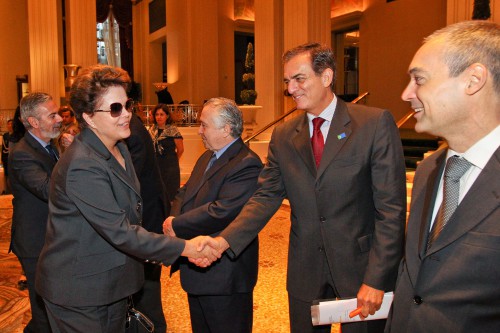By Sylvain Gaulier

According to Liberation News, Rousseff immediately thought of the future challenges ahead of her presidency in her victory speech. She addressed to her supporters: “Instead of increasing differences and creating gaps, I strongly hope that we create the conditions to unite. I want to be a much better president than I have been until now” as reported by The Guardian.
In order to clinch this crucial victory, Rousseff was backed by the poor northeast region amounting to 26 percent of the electorate. According to The Guardian, almost a quarter of the people living in these areas are beneficiaries of “Bolsa Familia,” a poverty relief program. However, she lost many votes in wealthiest regions of Sao Paolo, Rio, and Minas Gerais, which were stricken by debilitating public services and corruption scandals.
Neves’ liberal political ideas did not achieve to rally a majority of Brazilians. He promised not to tweak the existing social programs while trusting the market to revitalize the Brazilian economy. According to L’Opinion, he skillfully “capitalized on the population’s dissatisfaction.” Most of the Brazilian business owners supported Neves to reject Rousseff policies.
Three days before the election, thousands of pro-business protesters flocked to the streets to support Neves’ candidacy. This protest dubbed as “a cashmere revolution” reinforced the gaps between the electors. The Economist reports that Neves said “most of Brazilian GDP is here.”
Rousseff’s predecessor, Lula, jumped on the political opportunity to compare Neves to Hitler for his disdain for the less fortunate.
The political campaign of candidates Rousseff and Neves,were mainly centered on accusations of the other’s leader shortcomings. A comprehensive debate of ideas never took place giving a blow to the democratic process. The candidates’ campaign left many Brazilians frustrated because of the lack of a clear vision for the future of their country.

Rousseff was attacked on many fronts for her ties with Petrobras’ kickbacks scandal. She was blamed for being aware of these wrongdoings. On the other hand, The Guardian reports the pro-business candidate was put on the spot for his alleged corruption, nepotism, and sexism. These personal attacks baffled the undecided voters who were the real victims of the nasty campaign tricks.
The newly re-elected president is now committed to reduce the gap between the richest and poorest, which is one of the highest in the world, while improving the state of the Brazilian economy which recently entered in recession. She also has to deal with a fragmented parliament scrutinizing all her upcoming actions. This new mandate constitutes another big challenge for Rousseff who remains at the helm of a country destined to become one of the most influential nations in the future.






